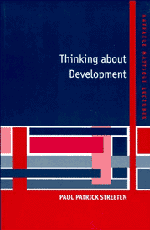COMMENTS ON THE DISCUSSION
Published online by Cambridge University Press: 05 February 2015
Summary
I am deeply grateful to the commentators for their remarks. I have learned much from them. Perhaps this is not surprising, since the speaker is encouraged to suggest names, and each of the commentators is not only a brilliant scholar but also a dear friend; two of them were my students. Let me reply to some of their comments.
I was a bit shaken (and welcome this condition) by Michael Lipton's assertion that “the distinction between ‘public’ and ‘private’ commodities … is simply neither necessary nor sufficient to tell us which commodities are likely in practice, or desirable in principle, to be candidates for public – sector production, provisionor financing. The distinction – while analytically of the highest importance – is completely useless for that purpose. ”
Of course, one can think of many public goods that can be produced, provided and financed by other institutions than the state, or by no institution. Lipton gives as an example a group of farmers with common control over common grazing rights. We might add a common language, which nobody controls, and a common currency, which some would take away from state control and put under the control of an independent central bank and such valuable public goods as trust, loyalty and truth-telling. Occasions like the Mattioli Lectures partake also in the nature of public goods.
- Type
- Chapter
- Information
- Thinking about Development , pp. 341 - 346Publisher: Cambridge University PressPrint publication year: 1995



